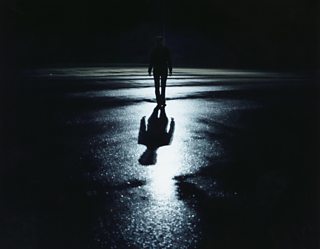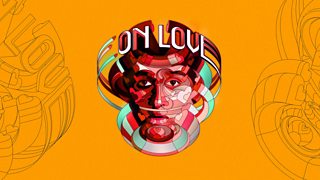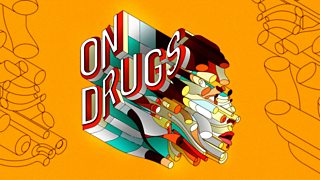People Who Don't Have Sex
Throughout my podcast series Jacob Hawley: On Love, I’ve been fortunate enough to discuss some genuinely cheering subjects and meet some properly lovely people.

I’ve met a guy who’s using porn as a form of activism to spread a positive message about new developments in HIV treatment. I’ve met activists who, after being the victims of image based sexual abuse, have now turned their lives in to a mission to help others who have been victims of similar crimes. I’ve spoken to a woman described by Vogue as the number one wedding planner in the world, who spends her days designing multi-million pound weddings for the rich and the famous who told me the best wedding she’d ever been to was one of her best friends, where they all sat on the floor and ate Chilli Con Carne.
But sadly, as well as the more positive, heartwarming topics, it has sometimes felt necessary to cover more unsavoury stories.
This week we’re looking at people who don’t have sex, and inevitably this has lead us to discussing a subculture known as Incels. It’s an ugly culture of people who come together online to spread hatred toward women.
But we shouldn’t let the ugliness of Incel culture taint the way we view everyone who doesn’t have sex. Aside from the Incels, I was lucky enough to speak to a few others this week with a different viewpoint.
I spoke to Yasmin Benoit, a model who created a campaign called This Is What Asexual Looks Like, a campaign to spread awareness of people who are simply Asexual, they do not experience sexual urges.
I was also lucky enough to speak to rapper Faith Child who chose to be celibate at a young age due to his religion. But that is soon about to change. Faith told me he’s getting married soon, and that on the night of his wedding he’s planning to break his celibacy.
Both Yasmine and Faith practice celibacy in a way that means their lives don’t contain sex, but they do contain love - Yasmine spends her time campaigning to help people understand if they don’t feel sexual urges themselves, Faith’s celibacy is about loving and serving a higher cause. A far cry from the hateful practices of the Incels.
Incels, who take their name from the term ‘involuntarily celibate’, are a group who started as an online community of people who would support each through their struggles with dating and losing their respective virginities.

It鈥檚 a frightening example of how small acts of misogyny and sexism can spiral into something more extreme..."
I’ve known about Incels for years - I always just thought they were basically a load of right wing nerds who didn’t like women due to being turned down so frequently, and thus spent their days saying vaguely sexist things on the internet as a kind of strange retribution.
From my conversation with researcher Zack Beauchamp, who wrote this fantastic article on Incels, I found that Incels have developed in to something quite frightening. They’re now a largely anonymous group of men who speak in a strange, semi-ironic code of misogyny and hate and regularly discuss ways in which they believe women should be punished for their sex lives.
This hate manifested itself in its worst form when Elliot Rodger killed 6 people and injured 14 others in California in 2014. Since these horrific attacks, the Incel community have celebrated him, referring to him as ‘Saint Elliot’ for committing the kinds of heinous crimes they regularly discuss online.
At no point in the making of the podcast did I consider trying to interview an Incel. It likely wouldn’t have been possible, as I say, they hide behind internet anonymity, but even so I wouldn’t want to give that kind of hate a platform. Zack did interview a few of them whilst compiling his research and found them to be a strange people, many of whom had been almost radicalised when at a point of vulnerability but who now do not deserve any kind of pity.
You may wonder, if I am keen not to give them a platform, why I would want to feature Incels on the podcast at all. I believe they require our focus because, as with so many similar groups that look to radicalise the vulnerable and turn them to hate, Incels exist in the shadows of society, they thrive in darkness and misery. By bringing them into the light, discussing and analysing how and why they exist, we not only stand to halt them from recruiting further lost young men, but we also stand to see where their horrifically sexist rhetoric comes from.

Zack’s research on Incels brings some shocking things to light, their language, the openness with which they bay for violence, the realisation that, through the way they anonymously use the internet, it is so difficult to track them down. Perhaps most frightening is the parallels between the misogyny that fuels the discourse between Incels and the misogyny that is becoming so commonplace in modern society.
It’s a frightening example of how small acts of misogyny and sexism can spiral into something more extreme, and more violent, and a timely reminder that we have to call out this behaviour however and whenever we can.
Bio
Jacob Hawley is a comedian and the presenter and creator of 麻豆社 Sounds’s award-winning podcast Jacob Hawley: On Drugs. The second series Jacob Hawley: On Love is out now.
Twitter:
Instagram:



